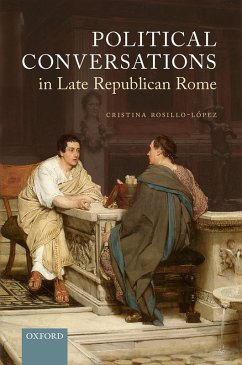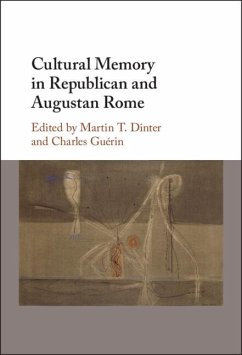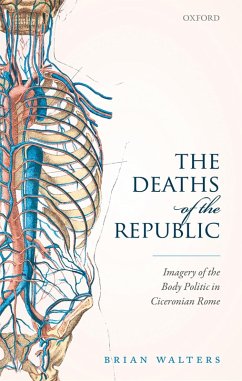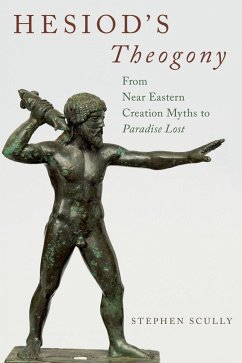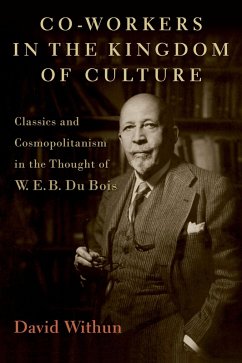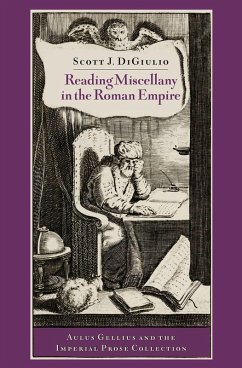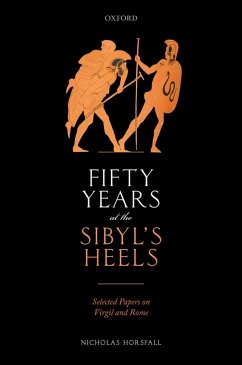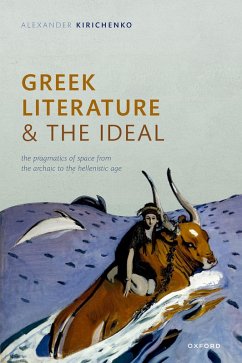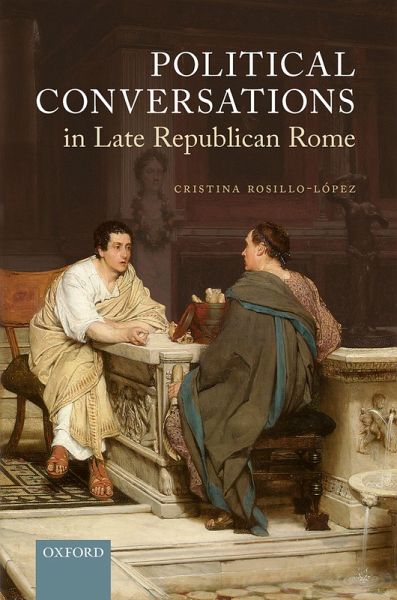
Political Conversations in Late Republican Rome (eBook, ePUB)
Versandkostenfrei!
Sofort per Download lieferbar
43,95 €
inkl. MwSt.
Weitere Ausgaben:

PAYBACK Punkte
22 °P sammeln!
Political Conversations in Ciceronian Rome offers for the first time a perspective of Roman politics through the proxy of conversations and meetings. In Rome oral was the default mode of communication in politics: oratory before the people in assemblies, addresses and discussions in the Senate, speeches in the law courts, rumours, and public opinion. We are familiar with the notion that the Roman political world of the Late Republic included lofty speeches and sessions of the Senate, but an important aspect of Late-Republican politics revolved around senators talking among themselves, chatting...
Political Conversations in Ciceronian Rome offers for the first time a perspective of Roman politics through the proxy of conversations and meetings. In Rome oral was the default mode of communication in politics: oratory before the people in assemblies, addresses and discussions in the Senate, speeches in the law courts, rumours, and public opinion. We are familiar with the notion that the Roman political world of the Late Republic included lofty speeches and sessions of the Senate, but an important aspect of Late-Republican politics revolved around senators talking among themselves, chatting off in the corner. Only when they could not reach each other in person, Roman senators and their peers resorted to letters. This book intends to analyse political conversations and illuminate the oral dimension of Roman politics. It posits that the study of politics should not be restricted to the senatorial group, but that other persons should be considered as important political actors with their own agency (albeit in different degrees), such as freedmen and elite women. It argues that Roman senators and their entourages met in person to have conversations in which they discussed politics, circulated political information and negotiated strategies; this extra-institutional sphere had a relevant impact both on politics and institutions as well as determined how the Roman Republic functioned.
Dieser Download kann aus rechtlichen Gründen nur mit Rechnungsadresse in A, B, BG, CY, CZ, D, DK, EW, E, FIN, F, GR, HR, H, IRL, I, LT, L, LR, M, NL, PL, P, R, S, SLO, SK ausgeliefert werden.




